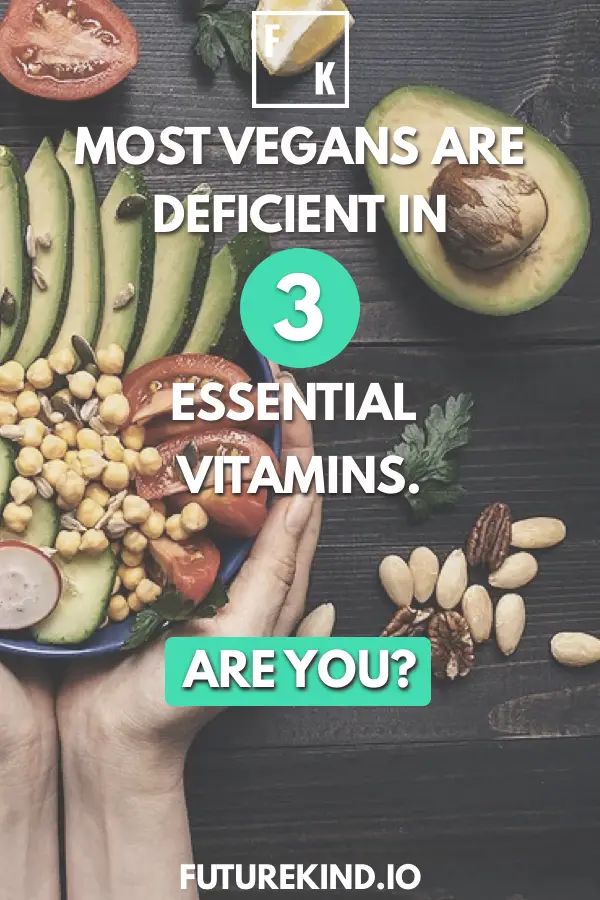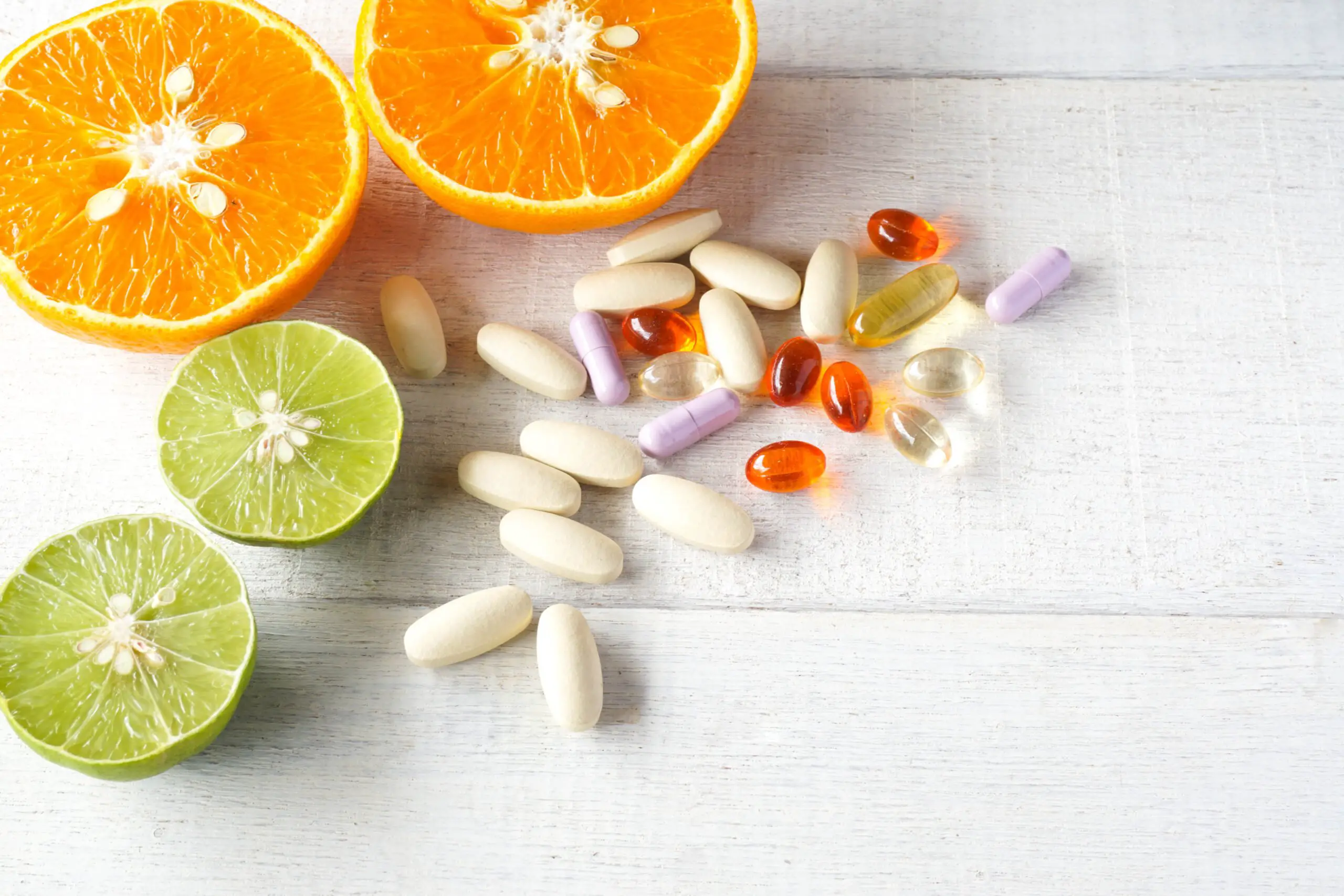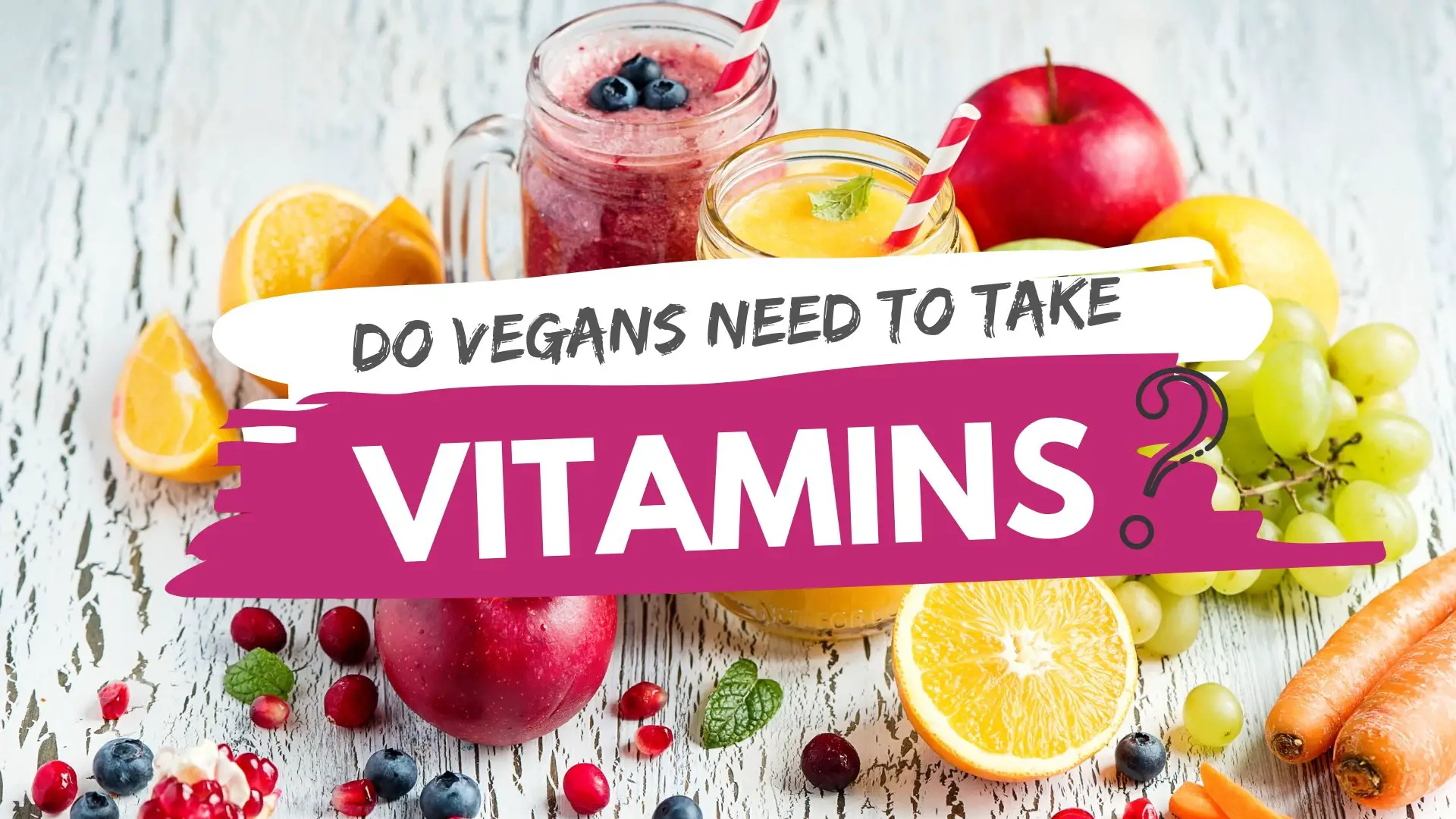Nutrients That Are Harder
- Zinc: Helps enhance the skin and nails, your sense of smell, healthy growth, healthy eyesight, wound healing, and a well-functioning immune system. Zinc is available from a wide range of plant-foods, including legumes, tempeh, and tofu, along with many nuts, seeds, and grains. Zinc is also available from mushrooms and spinach. Most of these foods that are rich in zinc also contain phytates, which hinder our bodies ability to absorb the nutrient.
- Iodine: Supports healthy thyroid function, which regulates the metabolism. Iodine exists in seaweeds like kelp, hiziki, kombu, or wakame, but may not be adequately consumed as part of a typical, Western plant-based diet. Prunes, cranberries, and baked potatoes also contain iodine.
- Selenium: Helps protect from neurodegenerative disorders, mood changes, cardiovascular disease and cancer, as well as reproductive problems in men and women. The only plant food with an abundance of selenium is brazil nuts. Brown rice, barley, oatmeal, baked beans, and spinach also contain selenium.
- Magnesium: Affects your mood, weight, sleep health, regularity, heart beat, energy, and metabolism, and can even affect PMS and depression. Some studies suggest that up to 80% of the U.S. populationvegans and omnivores alikeare deficient in the nutrient.
Vegetarian And Vegan Eating For Babies And Young Children
Up to the age of six months, babies only need breastmilk or infant formula.From around six months, most babies are ready to be introduced to solids although breastmilk or infant formula are still their main source of nutrition until 12 months. Vegetarian and vegan foods can be safely introduced to babies and young children, provided all their energy and nutrient needs are met. This requires careful planning. For some babies especially those being introduced to vegan eating, supplements may be recommended to ensure some essential nutrients typically provided by animal-based foods are supplied in adequate amounts .
As children grow, they need loads of nutrients a vegetarian diet should include:
- Protein alternatives .
- Energy for growth and development.
- Iron to prevent anaemia.
- Vitamin D and calcium to prevent bone disease.
- Suitable fats from non-meat sources.
- Food in the correct form and combination to make sure nutrients can be digested and absorbed .
If you wish to introduce your child to vegetarian or vegan eating, seek advice from a dietitian, doctor or your maternal and child health nurse to ensure they are getting essential nutrients for optimal growth and development.From around six months, solids from all five food groups should be introduced gradually, with first foods being rich in iron, protein and energy for growth.
How We Get Enough Iodine Following A Plant
Iodine isnt necessarily something youd think of if you were asked to list essential nutrients. But iodine is essential for thyroid function, its also a nutrient you need in the right balance too much or too little can cause problems in the body. What about seaweed? Thats source of iodine isnt it? Yes, but seaweed can also contain mercury and other pollutants from the sea. Thats why vegans and vegetarians tend to take an iodine supplement to ensure the right levels in the body.
Read Also: What Vitamins Should I Take While On Keto
Best General Vegan Multivitamins
If youre looking for a non-specific multivitamin that can be taken by both men and women, these are my choices. They provide you with the most popular vitamins and minerals that are essential for health and well-being.
This multivitamin only requires you to take one a day! It contains all vegan ingredients with added greens. It contains your daily value of B12, zinc, iodine, and iron. However, it does not include D3 or Omega-3s and has a low concentration of calcium. However, Deva does have an additional D3 supplement you can use in conjunction with their multivitamin.
This multivitamin contains the essential nutrients that many vegans do not naturally consume in their diet including B12, Vitamin D2, and Omega-3. These three essential nutrients enhance energy and immunity. Two capsules are recommended per day. They are easy to swallow and have a nice citrus scent.
Vegan Diet: How To Get The Nutrients You Need

Vegans avoid eating all animal products, including meat, eggs, and dairy. They also dont eat food that has an animal source, like gelatin and honey. For many, veganism is about more than food choices. People choose to be vegan for health, ethical, and/or environmental reasons. Strict vegans do not use any products made from animals. This includes materials, such as leather, fur, silk, or wool. They also avoid using certain soaps and cosmetics.
Read Also: Is Vitamin D Good For Joint Pain
Is It Safe To Be A Vegetarian Or Vegan During Pregnancy
A varied and balanced vegetarian or vegan diet can provide enough nutrients for you and your baby during pregnancy. However, you might find it difficult to get enough iron, vitamin D and vitamin B12.
Talk to your doctor or midwife about how to get enough of these important nutrients. All adults, including pregnant and breastfeeding women, should consider taking a daily supplement containing 10 micrograms of vitamin D, particularly during the winter months .
It’s also recommended that women should take a folic acid supplement while they are trying to conceive and should continue taking it for the first 12 weeks of pregnancy. See vitamins and nutrition in pregnancy for more information.
Read more about having a healthy diet during pregnancy.
Supports Healthy Pregnancy And Fetal Development
B vitamins are also crucial for supporting a healthy pregnancy and normal fetal development. Getting enough B-9 and B-12, are important to the development of a babys spinal cord. This is why its standard practice to educate mothers-to-be on supplementing folic acid and eating folate -rich foods, like dark leafy greens, lentils, and oranges, during pregnancy, to meet their minimum 400 micrograms per day requirement of this nutrient. In addition, some research suggests that vitamin B-3 may help bypass genetic mutations that can cause certain birth defects or an increased risk of miscarriage.
Also Check: Is Fish Oil Vitamins Good For You
Why Getting Enough Vitamin D Is Important For Everyone No Matter What You Eat
Vitamin D is known as the sunshine vitamin because the only way to get it naturally is by exposing your body to sunshine.
While our ancestors lived outdoors and didnt wear much clothing, in the modern world, this has changed. Today, most people work indoors and wear clothes much of the time.
As well, many of us live in northern climates with low levels of sunshine, particularly in the winter months.
A vitamin D deficiency is the most common vitamin deficiency in the world today. In fact, an estimated 40% to 60% of the worlds adult population dont get enough vitamin D.
Get All Seven With Hippo7s Vegan Multivitamins
Were delighted to be collaborating with Hippo7, a brand of vegan multivitamins designed specifically for vegans by vegans. Hippo7 is founded by vegans on this mission:
To ensure everyone on a plant-based diet is nutritionally supported and to help expand the movement by giving new vegans peace of mind, so they can continue this amazing journey.
Hippo7s multivitamins contain all 7 of the essential vegan vitamins we discussed today and are always:
- 100% Vegan
Also Check: When To Take Vitamin D Morning Or Night
Myth: Vegans Are Immune From Nutrient Deficiencies
Vegans tend to eat more nutrient-rich plant foods than non-vegans, which is great! If youre one of those fellow veggie-holics, Im sending you a big virtual high-five.
But dont make the mistake that many before you have. Eating your beans and kale and oatmeal and fruit smoothies doesnt necessarily mean youre covered on the nutrition front.
Sometimes you need to go a little further to make sure youre getting all the nutrients you need. This is not just a vegan issuemany non-vegans also are not getting the nutrients they need.
Bottom line: regardless of your dietary pattern, nutrient deficiencies can be harmful and preventative measures should be taken seriously.
Some nutrients that vegans commonly fall short on include:
- Calcium
When you go vegan, rather than just eliminating animal-based foods, its important to replace them with nutrient-dense plant-based foods. This way youre not missing out on any nutrients that those animal-based foods used to provide.
Other Vegan Supplements & Minerals
Finally, there are other minerals that may or may not be needed as supplements, depending on your definition of supplement.
Selenium is important to help protect against neurodegenerative disorders like Alzheimer and Parkinsons disease, mood changes, cardiovascular disease, and cancer, as well as reproductive problems in men and women. Its not in many plant foods , but it is in one, and in abundance: brazil nuts. If you want to get selenium this way, one nut day is the right amount for most people. Magnesium is another one that we can blame soil depletion for, and deficiency is a problem in vegans and omnivores alike. Magnesium also helps with the absorption of iodine, so if youre going to supplement with iodine, it probably makes sense to also include some magnesium, in the appropriate ratio.
So, in summary
You May Like: How To Get Vitamin D Levels Up
Getting Calcium On A Plant
Calcium is a mineral thats necessary for good bone and teeth health. It also plays a role in muscle function, nerve signaling, and heart health. Plant include bok choy, kale, mustard greens, turnip greens, watercress, broccoli, chickpeas, calcium-set tofu, and fortified plant milks or juices.Vegans are encouraged to consume at least 525 mg of calcium per day, which is the recommended daily allowance. Calcium supplements should be used if this cant be achieved through diet or fortified foods alone.
Vitamin D For Vegetarians And Vegans

Vitamin D is important for many important functions, supporting the regulation of hormones, maintaining immune function, and supporting calcium absorption for bone health. If your climate and lifestyle allow you to spend a lot of time in the sun, then you may be getting enough vitamin D. However, the likelihood is that you are not getting the recommended amount of vitamin D. A study published by the Archives of Internal Medicine in 2009 estimated that 77% of US teens and adults are deficient in vitamin D.
Vegetarians have far fewer options for foods that contain vitamin D. Outside of dairy, fish, or eggs, vegetarians must rely on fortified grains and cereals as their primary food sources of vitamin D.
If you are concerned that you may not be getting enough vitamin D from food or exposure to the sun, consider taking vitamin D supplements. Be sure to look for vitamin D3, rather than D2. A 2012 study published by the American Journal of Clinical Nutrition indicates that vitamin D3 is more effective at raising the blood levels of vitamin D. Vitamin D3 has become more popular in supplement form, but many foods are still fortified with vitamin D2.
Read Also: How Many Vitamin Shoppe Locations Are There
Health Concerns Of A Vegan Diet
While there are many benefits to a vegan diet, eliminating all animal products increases the risk of nutrient deficiencies. Plants are missing some of the vitamins, minerals, and essential fatty acids plentiful in meat. And one important vitamin B12 is only found in animal foods.
This means that if youre vegan, you must routinely supplement your diet or eat fortified foods to make sure you are getting certain essential nutrients.
Best Vegan Liquid Multivitamins
An easy to take, plant-based vegan liquid multivitamin designed for energy, immunity, and stress support. It contains D3, B12, and zinc. It does not contain calcium, iodine, or iron. In addition, Yuve Liquid Multi is fortified with vitamins and minerals to boost energy, manage weight, strengthen the immune system, and prevent aging. It is suitable for both men and women.
Recommended Reading: How Can I Increase My Vitamin D Level
Recommended Supplements For Vegans
Vitamin B12 is a given, but what else should vegans/plant-based eaters supplement?
- Vitamin D: Unless you spend a lot of time in the sun every day year-round, you are unlikely to obtain enough vitamin D from the sun. Supplementation via fortified foods or via supplement pills is recommended. Aim for 1,0004,000 IU per day. Keep in mind that Vitamin D is often derived from sheep, so you might want to opt for vegan Vitamin D.
- Iodine: As a vegan or committed plant-based eater, youre not consuming dairy or seafood which are sources of iodine for omnivores. If you eat sea plants such as kelp, nori, kombu, and wakame quite often, youre likely okay, though their iodine content is quite variable so you should still have your levels tested. Otherwise, its not a bad idea to supplement your iodine intake by either using iodized salt or through a supplement. The recommended daily intake for iodine is 150 mcg approximately half a teaspoon of iodized salt per day.
How Can I Get Enough Iron
Although meat is the best source of iron, other good sources include:
- pulses, such as beans, lentils and peas
- nuts
- dried fruit, such as raisins
- dark-green vegetables, such as watercress, broccoli and spring greens
- wholegrains, such as brown rice and brown bread
- cereals fortified with iron
As long as you remember to regularly include these foods in your diet, you should be getting enough iron.
Adult men need about 8.7mg of iron a day, and women need about 14.8mg a day. Women over 50 years of age need 8.7mg of iron a day.
Don’t Miss: What’s The Best Mens Vitamin For Energy
The Vegan Argument And Counterpoints
The key vegan argument centers around what is strictly enough to prevent a deficiency and in cases where theres no other option, they supplement. The problem with that reasoning is twofold:
1) DHA, EPA: yep, eat some flax, chia, and walnuts every day. Limit your vegetable oil. Not so hard. If you still test too low, take some algae supplements.
Counterpoint: ALA found in flax/chia/walnuts does not convert well into DHA and you will never get the optimal levels of DHA. And when it comes to DHA, were not getting enough. All you need to do is read my post about DHA to understand why you need to get optimal levels of this.
The majority of evidence from isotopic tracer studies show that the conversion of ALA to DHA is of the order of 1% in infants, and considerably lower in adults .
Theres a reason why vegans have 59% less DHA .
2) Vitamin B12: Veganism 101, supplement B12.
Counterpoint: Not a problem if vegans supplement.
4) Vitamin A/Retinol: the plant version is harmless, the animal version is toxic at too high dosage
12) Carnitine: you produce it
Testing For Vitamin B Deficiency
A person may sometimes have a B vitamin deficiency diagnosis and obtain treatment based upon clinical findings and a response to treatment, rather than specific testing. But a blood or 24-hour urine test is usually done to confirm any suspicions if an individual is at high risk.
If you show concerning symptoms like a rash, anemia, numbness, tongue inflammation, or abnormal fatigue its more likely that testing should be done to diagnose whats going on. Or, if you have a condition that puts you at a higher risk for vitamin B deficiency, like alcoholism, malnutrition, or a malabsorption disease, testing may be indicated.
Test results may show that you have less than optimal levels of certain B vitamins, but cant necessarily tell you whether its because of a lack in your diet or an inability to properly absorb the vitamin. However, they do give your health care provider a place to start when determining the best plan forward to treat the deficiency and underlying cause.
You May Like: How Much Vitamin D Does A Newborn Need
What About The Omega
Chia seeds and flax seeds, in particular, have abundant ALA, which the body can convert to EPA and DHA. Walnuts and hemp seeds also provide ALA.
But whether youre getting enough depends on the amount of ALA youre consuming, your conversion efficiency, and your bodys particular needs.
Considering how critically important EPA and DHA are to human health, supplementation is probably a good idea for most people and especially for those who dont eat consistent amounts of salmon, sardines, or other high-fat fish.
How much do you need? Theres no official recommendation, but most experts suggest a minimum of 250-500 mg combined EPA and DHA each day for healthy adults.
Why Do Vegans Need To Take Supplements

If you follow a nutritionally dense, health-promoting whole foods plant-based diet, you are already getting the majority of the micronutrients your body needs to thrive. In fact, vegan diets tend to contain higher levels of potassium, vitamin C, vitamin A, vitamin E, and manganese compared to conventional diets.
At the same time, there are a few key nutrients that aren’t easily found in a plant-based diet, plus poorly planned vegan diets can contain lower levels of essential nutrients.
Also Check: What Vitamin Supplements Should A Vegetarian Take
How We Get Enough Vitamin B12 Following A Plant
Vitamin B12 is needed by everybody, but its a real problem for those following a vegan or vegetarian diet, as there isnt a source of it in those diets. Why do we need it? Well, its vital for healthy blood cells, supporting the nervous and digestive systems, and for energy. Its what the body needs to convert carbohydrate into glucose, and therefore the energy for our bodies to use. Being deficient in Vitamin B12 can cause anemia, nerve damage, heart diseases, problems conceiving or during pregnancy, and many other ailments. The common advice for vegans and vegetarians is get a Vitamin B12 supplement.